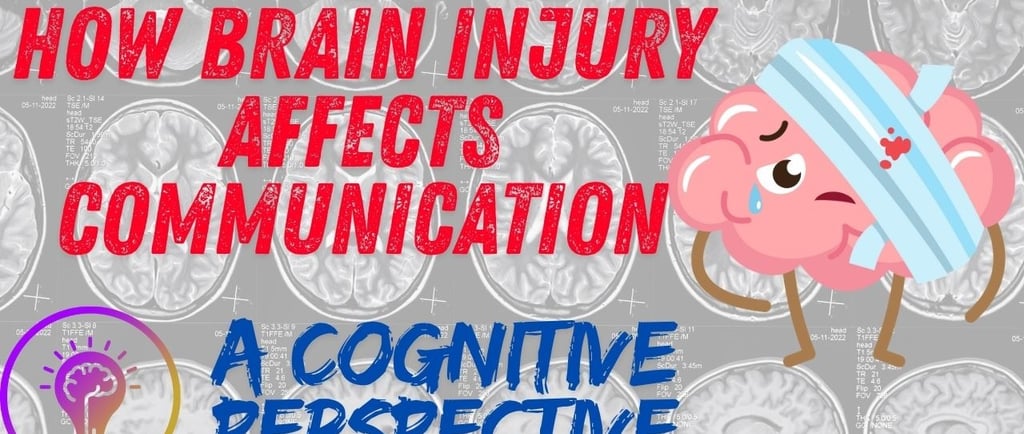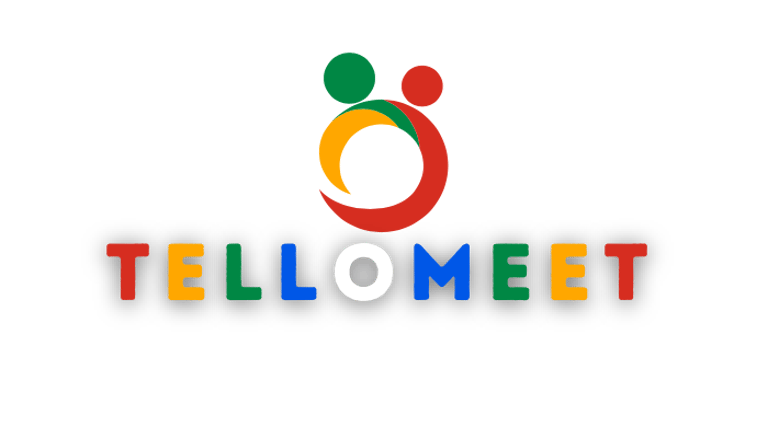Online Speech Therapy Platform
How Brain Injury Affects Communication: A Cognitive Perspective
Discuss how traumatic brain injury impacts language, thought, and daily conversations.
COGNITIVE-COMMUNICATION DISORDERS
7/26/20252 min read


🧠 Introduction
A traumatic brain injury (TBI) can dramatically alter a person’s ability to communicate effectively. While many people think of speech as just talking, it’s actually a complex process involving language, memory, attention, reasoning, and social skills. When any of these cognitive areas are impaired due to brain injury, communication can suffer in subtle and profound ways.
In this blog, we’ll explore how brain injury affects communication from a cognitive standpoint and how speech-language therapy — especially via teletherapy platforms like Tellomeet — plays a vital role in recovery.
💡 What Is a Traumatic Brain Injury (TBI)?
TBI occurs when the brain suffers a sudden trauma, such as from a:
Fall or accident
Sports injury
Stroke
Assault
Military-related blast injury
Depending on the location and severity of the injury, a person may experience a range of cognitive-communication deficits that affect how they understand and express thoughts.
🧩 Key Cognitive Skills Involved in Communication
After a brain injury, individuals may struggle with:
Attention – Difficulty staying focused in conversations
Memory – Forgetting what was said or needs to be said
Executive Functioning – Problems with planning, organizing, or staying on topic
Language Processing – Trouble finding the right words (word-finding issues)
Social Communication – Misunderstanding humor, sarcasm, or body language
These challenges can make daily interactions — at home, work, or socially — frustrating for both the individual and their loved ones.
💬 Real-Life Communication Challenges After Brain Injury
People with TBI may:
Take longer to respond in conversations
Repeat themselves or forget key details
Struggle to follow complex instructions
Interrupt or speak off-topic
Appear disorganized or inappropriate in discussions
Avoid social interaction due to fear or anxiety
Such issues often lead to social isolation, decreased self-esteem, and difficulty returning to work or school.
🧠 How Speech-Language Pathologists (SLPs) Help
SLPs play a critical role in cognitive-communication rehabilitation by designing therapy plans that target:
Attention and focus through structured tasks
Memory strategies like journaling or visual aids
Word-retrieval exercises for clearer expression
Social skills training to improve conversations
Problem-solving and reasoning tasks
Therapy is personalized to the patient’s needs and progress over time.
💻 Can Online Therapy Help?
Yes — online speech therapy through platforms like Tellomeet allows individuals with brain injury to receive accessible, evidence-based care from home. Benefits include:
Expert support from licensed SLPs
Consistent, flexible sessions
Involvement of family or caregivers
Use of digital cognitive tools and progress tracking
Teletherapy is especially helpful for individuals with limited mobility or transportation challenges.
✅ Tips for Caregivers and Family
If you’re supporting someone with a brain injury, here are ways to help:
Be patient and allow extra time for communication
Use simple, clear language
Encourage use of notes or reminders
Avoid distractions during conversations
Celebrate small progress milestones
🌟 Final Thoughts
Brain injury doesn’t just affect how a person talks — it affects how they think, remember, connect, and relate. By understanding the cognitive side of communication, we can better support recovery and rehabilitation.
Platforms like Tellomeet are revolutionizing access to speech-language therapy for brain injury survivors, giving them the tools to rebuild their communication and confidence — one step at a time.
